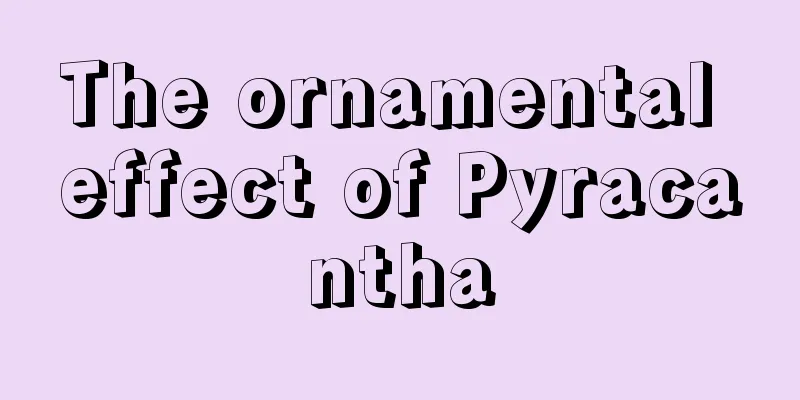The ornamental effect of Pyracantha

Morphological characteristics of PyracanthaPyracantha is an evergreen small tree that can grow to a height of three meters. Its side branches are shorter, and the tenderer branches are covered with short hairs. The longer growing branches are brown and not covered with hairs. The leaves of Pyracantha are oblong, medium to small, with serrated edges, smooth surface, and glossy green color. The flowers of Pyracantha are white and small, growing in clusters. The lush and lively appearance looks very elegant and beautiful. The calyx of the Pyracantha flower is bell-shaped, with slender filaments and stamens, and yellow anthers, which looks elegant and delicate. The flowering period of Pyracantha is from March to May every year, and the fruiting period is from August to November. The fruits of Pyracantha are very small orange-red spheres. Pyracantha potted plantsPyracantha can also be made into potted plants for viewing. Because Pyracantha is evergreen and a small tree or shrub, it is a good material for making potted plants. The shape of the Pyracantha plants made into potted plants is very compact and has a neat beauty. In addition, the branches and leaves of Pyracantha are very lush, and the flowers are very pretty. In this way, planting Pyracantha in potted plants can be enjoyed for both leaves and flowers. In addition, the small orange round fruits of Pyracantha can also be enjoyed for viewing. This shows the ornamental value of Pyracantha. Gardening of PyracanthaPyracantha is a low shrub with very strong growth ability and can adapt well to various ecological environments. Therefore, Pyracantha is a good urban greening plant and can be made into hedges to decorate the city. Because Pyracantha is an evergreen plant, making it into a hedge is a great addition to urban landscape. Pyracantha can also be made into various shapes through artificial pruning and shaping. It is very eye-catching when decorated in garden lawns, deep in courtyards, or in green belts on both sides of the road. It has a natural interest and high ornamental value. |
<<: What is the value of privet
>>: Edible and medicinal effects of Pyracantha
Recommend
How to plant Xanthoceras sorbifolia
1. Collect seeds When the fruit is ripe, you can ...
Winter Tomato Planting Techniques
Tomatoes, also known as tomatoes , are grown in a...
How often should I water the black orchid?
How often should I water the black orchid? The fr...
Snowdrop cultivation methods and precautions
How to grow snowdrops Light and temperature Snowd...
Jabuticaba watering method
1. Watering time Scientific watering is particula...
The flower language and legend of Huanliang grass
Flower language of Huanliang grass The flower lan...
Are succulents harmful to the human body?
1. Is succulent harmful to the human body? To ans...
How to grow spider plants more vigorously
1. Proper water control Chlorophytum comosum is d...
What to do if dragon fruit cannot be exposed to the sun? How to remedy sunburn
1. What to do Dragon fruit is a sun-loving plant ...
What should I do if the Buddhist beads are shriveled?
Cause Analysis Reason 1: Overwatering If you wate...
What is the best season for planting girl fruit?
The best time to plant girl fruit Girl fruit can ...
How to grow king coconut
1. Soil King coconut has strong adaptability and ...
How to fertilize Aspidistra
1. Time Because the effect of fertilizer lasts fo...
When does the lotus bloom?
1. Which season is it? The lotus flowers bloom in...
Will Dendrobium freeze to death in winter? How to survive the winter?
1. Will I freeze to death? Dendrobium is not very...









